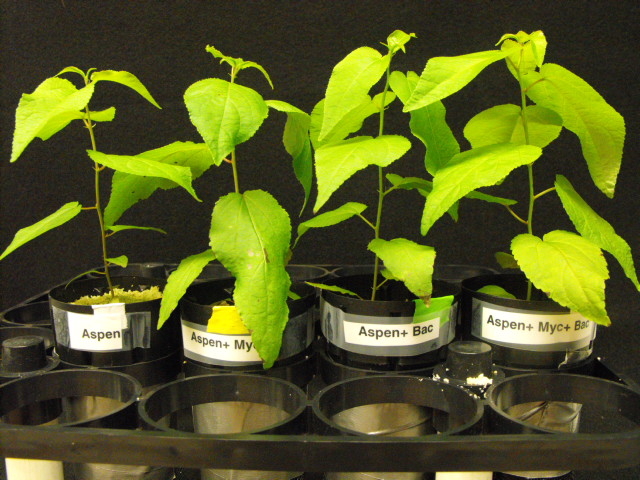Symbiosis between soil bacteria, mycorrhizal fungi, and roots of many ecologically and economically important tree species leads to coordinated resource exchange and enhanced productivity and resiliency in forest ecosystems. Although nutrient cycling and exchange are key features of symbiotic interactions, very little is known about the molecular mechanisms that underpin their establishment and how these interactions drive the formation of rhizosphere communities.
The Argonne SFA proposes fundamental research to elucidate the complex plant-microbe symbiotic interactions between the tree Populus tremuloides, the ectomycorrhizal fungus Laccaria bicolor, and rhizobacteria that influence the capture, partitioning, and allocation of carbon under nutrient limitation.
Our goal is to identify and characterize mechanisms by which the symbiotic rhizobacterium Pseudomonas fluorescens provides beneficial effects to the plant. A simple tripartite symbiotic system will be evaluated through a systems biology approach that integrates computational modeling, multi-omics experiments, and extensive assessment of plant physiology and bacterial phenotypes. Symbiotic tripartite communities cultivated under varying phosphorus availability and composed of different rhizobacterial strains will be investigated.
As part of this approach, the SFA will also leverage DOE user resources including EMSL, JGI and KBase. The molecular pathways and proteins that mediate sensing of rhizosphere signals and adaptive responses in P. fluorescens will be characterized using biophysical/biochemical and genetic approaches. Predictive modeling will guide target selection and specific experimental validation of de novo model predictions. This strategy will identify molecular pathways that are key for symbiotic interactions with plants and achieve a genome-based, dynamic systems-level understanding of organism and community function.
